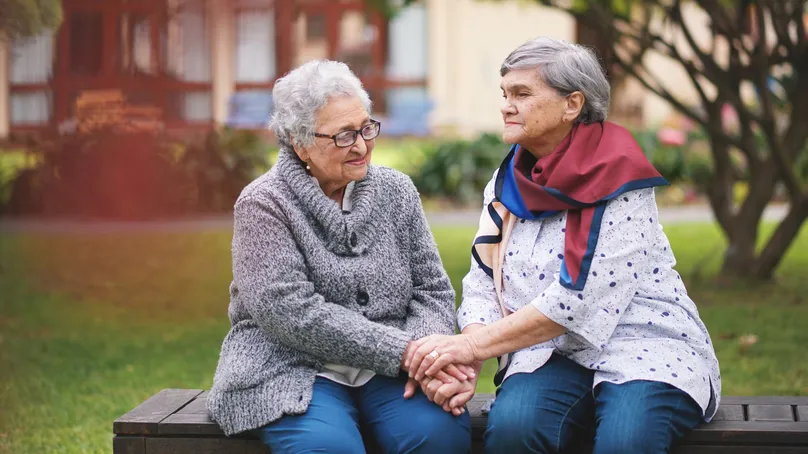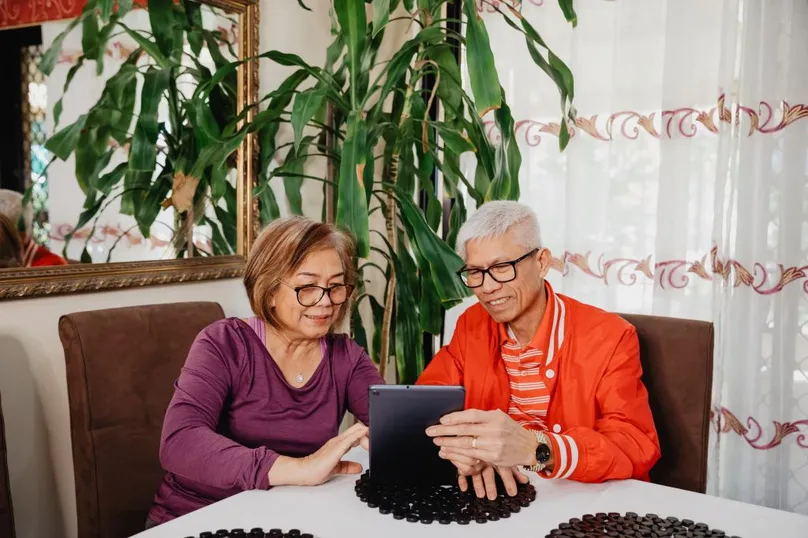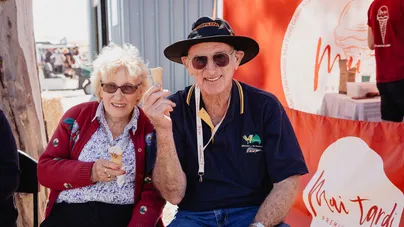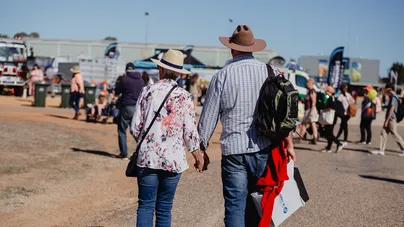Social connection is important for your health. Here’s how to find support if you’re feeling lonely or isolated.

Loneliness and isolation aren’t just unpleasant. They can affect both your mind and body. Many people experience them, especially after life changes like retirement, moving house, illness, or loss. These moments can disrupt your routines and support networks.
If you’re feeling lonely, you’re not alone – and you don’t have to face it on your own. Support is available to help you feel more connected. You can speak with your GP or contact LiveUp’s Navigators to find social programs near you.
Why social connection matters for your health
Staying socially connected supports your health in many ways, especially as you age.
Research from the World Health Organisation shows social isolation can increase your risk of chronic disease and early death – even as much as smoking or obesity.
It’s about more than just having company. Social connection affects your stress levels, memory, and even how you experience pain.
Learn more about the power of communityFeeling lonely isn’t a weakness. It’s a signal your body and mind need care. Just like hunger tells you it’s time to eat, loneliness tells you it’s time to connect.
Learn how to connect with your communityUnderstanding loneliness
To address loneliness, it helps to understand what it is and why you might feel it.
What's the difference between loneliness and social isolation?
Social isolation is when you have little or no social contact with others. This can lead to loneliness, sadness, or depression.
But even if you’re surrounded by people, you can still feel lonely.
Loneliness is the feeling of being disconnected or missing deeper, more satisfying relationships.
How to build deeper connections
Stronger relationships take time, honesty, and shared experiences. Try talking to someone close about how you’re feeling. It could open the door to more meaningful connection.
You can also try finding shared interests with people you’d like to grow closer to. For example, you could explore a new hobby with grandchildren.
More tips for connecting with grandkidsResources for building stronger relationships
Visit Ending Loneliness Together for more advice on how to build meaningful relationships. They also have tips to help you start deeper conversations.
You can also read Beyond Blue’s booklet Connections Matter. It has a helpful planning guide, and ideas for staying connected when you’re over 60.
Where to get support for loneliness or isolation
There are programs and people who can help. You don’t have to wait until things feel serious.
Ask your GP
Your GP may refer you to group activities like gardening, art, or shared meals. This kind of referral is called social prescribing, and it’s growing in Australia.
You don’t need to be in crisis to ask – being proactive is part of good health.
Access funded programs
If you're over 65, you may be eligible for government-funded support that includes help with social connection. For example, you can apply for friendly home visits through the Aged Care Volunteer Visitors Scheme.
These services exist because social connection is a health need, not a luxury.
Use LiveUp’s free resources
LiveUp's Navigators can help you find local activities and groups using the social activities database. Call us for free on 1800 951 971. We can also send you a summary of your results after the call.
How technology can help you connect
Technology can help you stay in touch with loved ones who live far away.
See tips for staying in touch onlineYou can also meet like-minded people in online communities that match your interests. Look for Facebook groups or forums based around something you enjoy, such as crafting or gardening.
For example, ConnectUp is the LiveUp Facebook community for sharing tips and ideas about healthy ageing.
Can pets help with loneliness?
Spending time with animals (especially dogs) can:
- Lower stress and lift your mood
- Help ease feelings of loneliness
- Encourage movement and routine, improving your overall health
Can’t own a pet? You can still enjoy time with animals. Some libraries, aged care services, and community centres offer animal visits.
Learn more about the health benefits of petsTake the first step today
Here's what you can do next:
- Ask your GP about social programs
- Call LiveUp Navigators or browse the activities database
- If you receive CHSP services, ask if social support can be added
- Let someone close to you know how you’re feeling – you’re not burdening them
You don’t have to push through loneliness on your own. Connection is part of staying well, and support is available to help you take that first step.
Explore LiveUp’s social activities database by clicking the button below – or call 1800 951 971.
Find social activities near youReferences
Australian Institute of Health and Welfare. (2025, May 20). Social isolation and loneliness. https://www.aihw.gov.au/mental-health/topic-areas/social-isolation-and-loneliness
Ending Loneliness Together. (2023). State of the nation report – Social connection in Australia 2023. https://lonelinessawarenessweek.com.au/wp-content/uploads/2023/08/state-of-nation-social-connection-2023.pdf
Halcomb, E., Thompson, C., Tillott, S., Robinson, K., & Lucas, E. (2022). Exploring social connectedness in older Australians with chronic conditions: Results of a descriptive survey. Collegian, 29(6), 860–866. https://doi.org/10.1016/j.colegn.2022.05.011
Rosenzweig, O. (2024, April 12). Social prescribing for healthy ageing. Northern Community Health & Research Foundation. https://www.nchrf.com.au/post/social-prescribing-for-healthy-ageing
Samtani, S., Tabacchi, T., Li, L., Gallacher, J., Samarasekera, N., van der Linden, M., et al. (2022). Associations between social connections and cognition: A global collaborative individual‑participant data meta‑analysis. The Lancet Healthy Longevity, 3(11), e740–e753. https://doi.org/10.1016/S2666-7568(22)00199-4
Shen, C., Rolls, E. T., Cheng, W., Kang, J., Dong, G., Xie, P., et al. (2022). Associations of social isolation and loneliness with later dementia. Neurology, 99(2), e164–e175. https://doi.org/10.1212/WNL.0000000000200583
Sommerlad, A., Sabia, S., Singh-Manoux, A., Lewis, G., Kivimäki, M., & Livingston, G. (2019). Social contact in mid‑life and dementia risk: Whitehall II cohort study. PLOS Medicine, 16(8), e1002862. https://doi.org/10.1371/journal.pmed.1002862
World Health Organization. (2023, November 15). WHO launches commission to foster social connection. https://www.who.int/news/item/15-11-2023-who-launches-commission-to-foster-social-connection
World Health Organization. (2025, June 30). Social connection linked to improved health and reduced risk of early death. https://www.who.int/news/item/30-06-2025-social-connection-linked-to-improved-heath-and-reduced-risk-of-early-death
How to use this information
LiveUp provides free information to help you make informed decisions about your health. This information is for general and educational purposes only, is not intended to provide a comprehensive guide, and does not replace medical advice. Everyone is different, so some of these tips may work better for you than others. You should use your own judgment and seek medical advice when applying this information to yourself, to determine if it is suitable in your circumstances. Your use of, or reliance on, this information is solely at your own risk. Independent Living Assessment Incorporated is not responsible or liable for any injury, loss, or damage caused as a result of your use of, or reliance on, this information.
Download and print this article:
You can print out the PDF and stick it to your fridge or file away the tips to revisit at a later time.

Read more Social articles
Did you enjoy this article? You may also like reading similar healthy ageing articles.
See all Social articles

